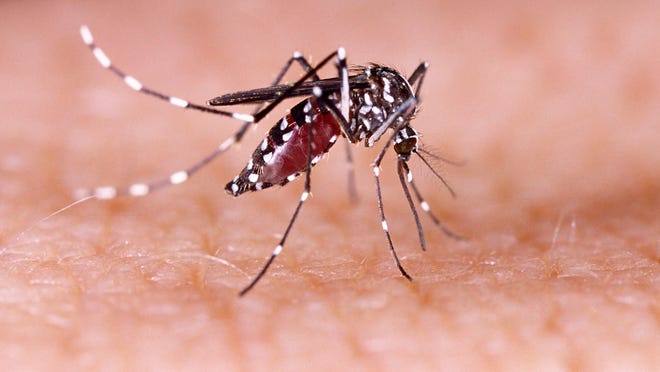Targeting Summer's Pathogen-Carrying Pest
"The mosquito is very difficult to control. It likes to live around people, in houses, under houses.""We're also seeing an increase in resistance to a number of our adulticide products that we use for mosquito control, so at the end of it, we're looking for new tools to put in our tool box to help us control this particular mosquito.""[It's important to look at methods without impacts on the environment]."Andrew Leal, executive director, Florida Keys Mosquito Control District"I like the way they're going about it. They're doing it in a systematic, thoughtful way.""So I'm encouraged, but they have a lot of work ahead of them."Thomas Scott, entomologist, University of California, Davis
 |
| An Aedes aegypti mosquito is shown in a lab at the University of El Salvador, in San Salvador. (CNN) |
When the Zika virus began spreading in Brazil and French Polynesia and with its presence an alarming surge in babies born with abnormally small heads, a condition called microcephaly, it didn't confine itself to those geographies, but began spreading worldwide. Mothers infected with Zika were left with babies whose condition at birth was less than optimal in development. The mosquito lost no time in spreading the virus to another 34 countries. The United States was one of them, where Texas and Florida now host theAedes aegypti mosquitoes.
In an effort to combat the problem, Florida contracted with a biotechnology company, Oxitec, that developed genetically modified mosquitoes. The scheme to release millions of genetically modified mosquitoes in the Florida Keys alarmed environmentalists, biologists and area residents. Much the way genetically modified food crops have engendered suspicion and aversion to this area of science, its detractors are averse to releasing these modified organisms since once released, they cannot be recalled and no one can guarantee their release will not have an impact not quite expected.
April 2021 saw the first phase of what was to be a pilot study where almost five million modified Aedes aegypti male mosquitoes were released in a group of islands off Florida's southern tip. Examined results to date give every indication the method may succeed in the eradication or diminishing the number of the problem mosquitoes in circulation. While Aedes aegypti make up only four percent of the mosquito population in the Keys, they are responsible for the spread of yellow fever, dengue, chikungunya and Zika virus.
The Florida Keys are situated within a national marine sanctuary, which makes it imperative that any such initiative limiting the number of and malign outcomes of exposure to the mosquitoes as carriers of these pathogens does not end up harming the environment or adversely effect other native organisms. Mosquito boxes out of which genetically modified male mosquitoes emerge then hunt down the wild females for the purpose of breeding were distributed to select neighbourhoods in the Florida Keys.
Researchers were able to observe 22,000 mosquito larvae from areas where the males were released. The modified males had been engineered to carry a gene designed to kill female offspring. Male offspring end up carrying the modified gene. The researchers verified that none of the female larvae, offspring of the modified males, lived to adulthood. The experiments are set to continue; another release is scheduled for Visalia, California.
 |
| An aedes aegypti mosquito which can spread Zika virus and dengue fever Dreamscape |
Labels: Aedes egyptis, Florida Keys, Genetically Modified Mosquitoes, Research

0 Comments:
Post a Comment
<< Home